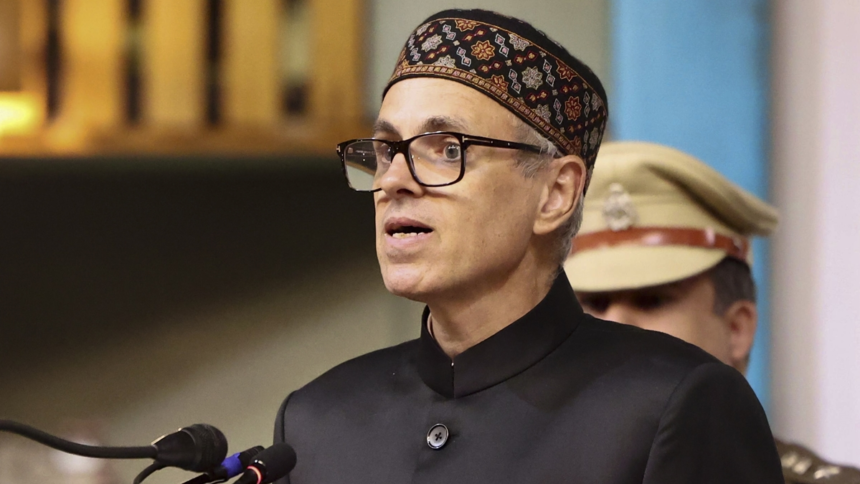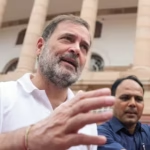Omar Abdullah Govt Drafts Progressive Media Policy, Replacing 2020’s Stringent Norms
The Jammu and Kashmir government, led by Omar Abdullah, has drafted a new media policy aimed at granting greater autonomy and expanding digital advertisement opportunities. The proposed policy marks a shift from the stringent, security-focused guidelines introduced in 2020 following the abrogation of Article 370, which were primarily designed to curb “anti-national narratives” and tighten media control.
The Jammu and Kashmir government’s Draft Media Policy 2025, set to be released soon for public feedback, formally acknowledges digital platforms and social media channels for government advertisement empanelment. This marks the first major policy initiative under the Omar Abdullah-led National Conference (NC) government since it assumed office in October last year.
Officials say the new policy aims to redefine government-public communication, with a particular focus on engaging the youth, who primarily consume news online. A dedicated section titled “Jammu and Kashmir Digital Media Advertisement Policy, 2025” outlines these provisions.
To qualify for government advertisements, digital platforms must have been operational for at least three years and maintain verified, active accounts on Facebook, X (formerly Twitter), Instagram, or YouTube. Applicants must also submit analytics reports, proof of a registered office in J&K, and two years of income tax returns.
Private FM radio stations must demonstrate at least six months of commercial broadcasting with a minimum of 16 hours of daily programming. Community radio stations are required to show at least three months of operation with a minimum two-hour daily broadcast to be considered for empanelment.
Under the Draft Media Policy 2025, print media outlets must meet minimum circulation benchmarks—3,000 copies for daily newspapers and 5,000 for monthly publications—to qualify for government advertisements. The policy also introduces a novel provision for student participation, enabling university and college students to contribute content through a competitive selection process focused on video production.
To widen public engagement, the policy outlines plans to promote and support traditional and performing arts. Financial and institutional backing will be extended to art forms such as drama, puppetry, folk music, street plays, operas, and regional dance festivals. These performances will serve as cultural tools to disseminate information about government schemes and public awareness campaigns.
The policy emphasizes the government’s commitment to media freedom as a cornerstone of democratic governance, recognizing the media’s essential role in fostering transparency, accountability, and informed public discourse. “By safeguarding the media’s autonomy, the government ensures public access to accurate, timely, and reliable information—vital for civic participation and the preservation of democratic values,” the policy notes.
This new approach marks a significant departure from the 2020 media policy, which drew widespread criticism from political parties and media organizations. The earlier policy mandated background checks of editors, publishers, and reporters before their outlets could be empaneled for government advertisements. It also empowered authorities to scrutinize the content of print, electronic, and other media for “fake news, plagiarism, and unethical or anti-national activities.”
The 2020 policy had framed Jammu and Kashmir as a region facing serious “law and order and security considerations,” stating that it had been “fighting a proxy war supported and abetted from across the border.” It justified stringent media controls as necessary to counter the efforts of “anti-social and anti-national elements” attempting to disrupt peace in the region. (AGENCIES)









